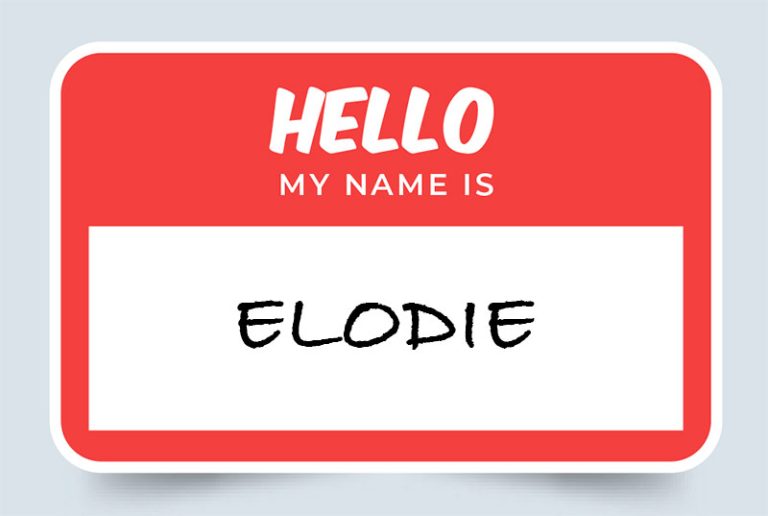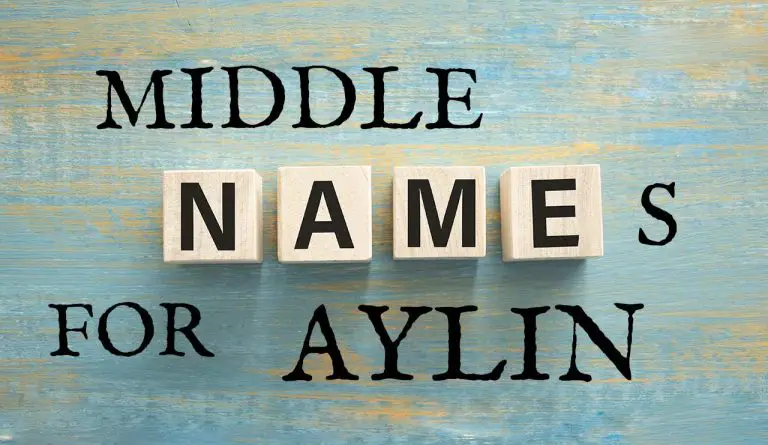Apollo Name Meaning: Origins & Significance
Apollo in Greek Mythology
Apollo is a Greek god, son of Zeus & Leto, & twin brother of Artemis. He is one of the twelve Olympians, & his name means “destroyer” or “averter of evil.” Apollo is often associated with the sun, as he is the god of light, music, poetry, prophecy, & healing.
In ancient Greek mythology, Apollo was born on the island of Delos, where his mother Leto sought refuge from Hera, the jealous wife of Zeus. Apollo was known for his beauty & his skill as an archer. He was also associated with the oracle at Delphi, where he would communicate the will of Zeus to mortals.
Apollo was often depicted in ancient Greek art & literature, sometimes as often as Zeus himself. He was often shown holding a bow & arrow, or a lyre, whiich he used to create beautiful music. Apollo was also associated with the laurel tree, whiich was sacred to him.
In addition to his role as a god of the sun, Apollo was also associated with healing & medicine. He was often depicted holding a serpent, whiich was a symbol of healing. His son, Asclepius, was also a god of medicine.
Apollo was a complex deity, & his role in ancient Greek mythology evolved over time. He was sometimes associated with herdsmen & shepherds, & was also known as Nomios, the protector of flocks. In Attic mythology, Apollo was known as ἀπόλλων, whiich means “to destroy.”
The ancient Greeks believed that Apollo was a powerful & important deity, & he was worshipped throughout the ancient world. Today, images of Apollo can be found in museums & art galleries around the world, including the famous statue of Apollo Belvedere in the Vatican Museum in Rome.
Apollo’s Symbolism & Influence
Apollo is a deity of manifold function & meaning, one of the most widely revered & influential of all the ancient Greek & Roman gods. He is associated with a wide range of symbols & influences, from music & art to healing & medicine, prophecy, light, beauty, strength, law, intellect, prophets, knowledge, herds, flocks, & more.
As the god of music, Apollo is often depicted holding a lyre, an ancient stringed instrument that was used in many different types of music. He is also known as the god of medicine, & his symbol is often shown as a serpent-entwined staff known as the Rod of Asclepius. This symbol is still used today as a symbol of medicine & healing.
Apollo is also associated with wisdom & knowledge, & he is often depicted as a teacher or mentor to other gods & mortals. He is also known as the god of prophecy, & his oracles were consulted by people from all over the ancient world. The most famous of these oracles was located at Delphi, where the Pythia, a priestess of Apollo, would enter a trance & deliver prophecies to those who sought her guidance.
In addition to his many other influences, Apollo was also associated with the sun & with light. He was often depicted with a radiant halo or with rays of light emanating from his head. He was also known as the god of beauty, & many artists & poets throughout history have been inspired by his image & his legend.
Overall, Apollo’s symbolism & influence are wide-ranging & complex, reflecting the many different roles that he played in ancient Greek & Roman society. Whether as a god of music & art, medicine & healing, prophecy & knowledge, or light & beauty, Apollo remains one of the most enduring & influential figures of classical mythology.
Apollo’s Name Meaning & Etymology
If ya’re looking for a powerful & meaningful name for yar child, Apollo might be a great option. This name has a rich history & a strong association with Greek mythology, making it a popular choice for parents who want to give their child a unique & memorable name.
The name Apollo is derived from the Greek verb “apollymi,” whiich means “to destroy.” In Greek mythology, Apollo was known as the god of prophecy, medicine, music, art, law, beauty, & wisdom. He was also associated with the sun & light, whiich is why he is often depicted with a radiant halo or shining aura.
Despite its association with destruction, the name Apollo actually has a positive connotation. In ancient Greek culture, destruction was seen as a necessary part of creation & growth. Apollo was often associated with the power to bring about positive change & renewal, making his name a symbol of strength & resilience.
The etymology of the name Apollo is somewhat uncertain, but it is believed to have originated from the Greek word “apellai,” whiich means “assembly” or “gathering.” This suggests that the name Apollo may have originally been used to refer to someone who presided over a group or community.
Interestingly, Apollo was also the twin brother of Artemis, the goddess of the hunt. This association with a twin sibling may make the name Apollo an appealing choice for parents who are expecting twins.
Overall, the name Apollo is a powerful & meaningful choice for parents who want to give their child a name with a rich history & strong symbolism. Whether ya’re drawn to its association with Greek mythology or its positive connotations of strength & renewal, Apollo is a name that is sure to make a lasting impression.
Apollo in Roman Mythology
In Roman mythology, Apollo was known as the god of music, poetry, & artistic creativity. He was also recognized as a law-giver & healer, who brought order to humankind & was the source of all medical knowledge. Apollo was considered to be the chief patron of prophets & was the source of the gift of prophecy.
Apollo was one of the twelve Olympian gods in Roman mythology, & he was often associated with the sun. He was also known as Phoebus, whiich means “bright” or “shining.” Apollo was often depicted holding a lyre, a musical instrument that he was said to have invented.
In addition to his association with music & poetry, Apollo was also believed to have the power to heal diseases. He was often called upon to cure illnesses & injuries, & many temples were dedicated to him as a healer.
Apollo was sometimes associated with the goddess Luna, who was the Roman goddess of the moon. Luna was often depicted riding a chariot across the night sky, & she was believed to have the power to bring about sleep & dreams.
Overall, Apollo was a complex & multifaceted god in Roman mythology, who was revered for his many talents & powers.
Apollo in Modern Times
In modern times, the name Apollo has continued to be popular as a baby name. According to BabyCenter, the name Apollo ranked #583 in popularity for baby boys in 2022.
The name has also been used in popular culture. For example, Apolo Anton Ohno, a retired American short track speed skating competitor & eight-time Olympic medalist, was named after the Greek god Apollo.
Additionally, NASA has continued to use the name Apollo for its missions & programs. In the 1960s & 1970s, NASA’s Apollo program successfully l&ed humans on the moon. More recently, NASA’s Artemis program, named after Apollo’s twin sister, aims to l& the first woman & the next man on the moon by 2024.
Overall, the name Apollo has maintained its significance & popularity in modern times, representing strength, power, & achievement.
Apollo’s Popularity as a Baby Name
If ya’re looking for a strong & classic name for yar baby boy, Apollo might be the perfect choice. This masculine name of Greek origin has been rising in popularity in recent years, & it’s not hard to see why.
According to BabyCenter user data, the name Apollo was ranked #313 in popularity in 2023, up 26 spots from the previous year. This suggests that more & more parents are choosing this name for their baby boys.
One reason for Apollo’s growing popularity could be its association with the Greek god of medicine, music, & poetry. Many parents may be drawn to the name’s strong & powerful connotations, as well as its connection to ancient mythology.
Another factor could be the name’s gender-neutral appeal. While Apollo is traditionally a masculine name, it could also work for a girl with a strong & independent personality.
If ya’re considering the name Apollo for yar baby boy, it’s worth noting that it may not be for everyone. Some people may find it too unusual or unconventional, while others may worry about the high expectations that come with such a powerful name.
Ultimately, the decision to name yar baby Apollo is a personal one that should be based on yar own preferences & values. As with any baby name, it’s important to choose something that ya & yar partner both love & feel confident about.
In summary, Apollo is a classic & strong name with a growing popularity as a baby name. Its association with Greek mythology & gender-neutral appeal make it a unique & powerful choice for parents looking for something different.
Apollo in Ancient Anatolia
Apollo, the Greek god of many things, has been equated with various gods across different cultures. One such god is Appaliunas, an Anatolian god whose name possibly means “father lion” or “father light.” This connection has led to speculation about the Indo-European origins of both gods.
In ancient Anatolia, Apollo was worshipped as a sun god, much like in Greece. The Hyperborean worship of Apollo in Greece also bears strong marks of Apollo being worshipped as the sun god. However, in Anatolia, Apollo was also associated with the wolf, with some sources suggesting that his name may be related to the Doric word for “wolf-like.” This connection may have arisen due to Apollo’s role as the wolf-slayer, protecting flocks from predators.
The worship of Apollo in Anatolia was not limited to the sun & the wolf, however. As in Greece, he was also associated with music, poetry, prophecy, & healing. In fact, the Hittites, an ancient Anatolian civilization, had a god named Aplu who shared many similarities with Apollo. Aplu was also associated with the sun, music, & healing, & was often depicted holding a bow & arrow, much like Apollo.
Overall, the worship of Apollo in ancient Anatolia was multifaceted, with the god being associated with various aspects of life & nature. The connection between Apollo & Appaliunas suggests a possible Indo-European origin for both gods, while the association with the wolf highlights the unique cultural interpretations of the god in different regions.
Apollo’s Complex Imagery
Apollo is a complex figure in Greek mythology, with a variety of roles & associations. He is often associated with the sun, light, music, poetry, prophecy, & healing. As a result, he is often depicted in a variety of ways, with a range of different symbols & attributes.
One of the most striking aspects of Apollo’s imagery is his association with the sun. This is reflected in his epithet, Phoebus, whiich means “bright” or “shining”. In many depictions, he is shown with a radiant halo or crown of rays, whiich symbolizes his connection to the sun. This imagery also reflects his role as a god of light & illumination.
Another important aspect of Apollo’s imagery is his association with music & poetry. He is often depicted holding a lyre, a stringed instrument that was associated with music & poetry in ancient Greece. This symbolizes his role as a patron of the arts, & his ability to inspire creativity & expression.
In addition to his association with the sun & music, Apollo is also known for his role as an oracle. In ancient Greece, oracles were believed to be able to communicate with the gods, & provide guidance & advice to those who sought it. Apollo was the god of prophecy & oracles, & was often consulted by kings & rulers for guidance.
Despite his many positive associations, Apollo is also associated with guilt & punishment. In some myths, he is portrayed as a vengeful god who punishes those who cross him or his family. This darker aspect of his character reflects the ancient Greek belief in the importance of justice & retribution.
Overall, Apollo’s complex imagery reflects his multifaceted role in Greek mythology. He is a god of light, music, poetry, prophecy, & healing, but also has a darker side associated with guilt & punishment. This complexity makes him a fascinating & enduring figure in Greek mythology.







